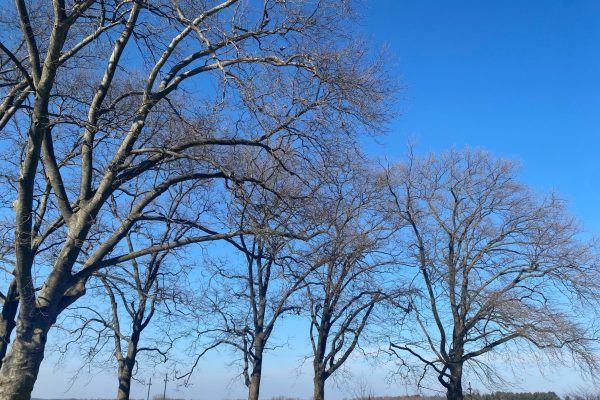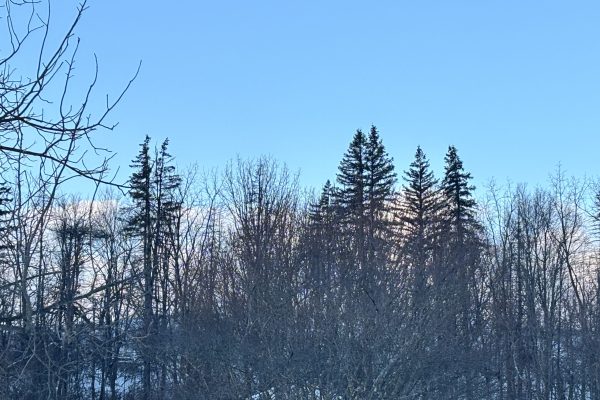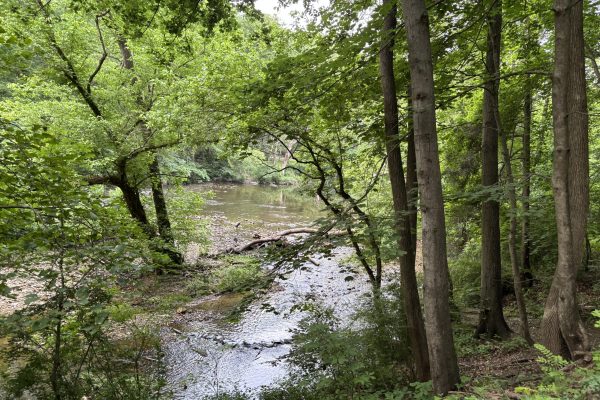OPENING
When the dove returned to him in the evening, there in its beak was a freshly plucked olive leaf! Then Noah knew that the water had receded from the earth. (Genesis 8:11)
The olive leaf represents the beginning of a new world. The birthday of a tree born from water and the beginning of the hope from that moment on for generations to come.
This is also the beginning of humanity that from that moment on began a better life and a better world. Tu Bi’Shevat not only commemorates the birth of trees but the renewed covenant between the human being who comes out of the arc of loneliness to life with other humans and with nature.
Kiddush–Blessing of the wine
Let us bless the good and generous earth
Let us bless the fruits of our gardens
Let us bless the richness of dew and rain, light and love
And the ripening wheat in our fields
And the one who brings forth the fruits of the earth
Provides live waters to the wells of our lives, and bread.
Blessed is the one who creates the fruit of the vine.
ROOTS
Blessing:
Let us bless the root
That is hidden and modest but sustains what is above it.
That breaks through paths through rocks and earth.
Drinks live waters for the springs of redemption and nourishes the trunk that is above it.
Unlocks depths and flows treasures of growth and bloom.
Connects between the fruit of tomorrow and the foundations of ancient hope.
Blessed is the one who buries in the earth roots of nourishing flow.
Happy is the one who sees the trees of her life, knows it roots, the sources of its growth and the foundations of her strength.
Song:
Shirat ha’asavim ~ The Song of the Grasses
“The Song of the Grasses” by Naomi Shemer based on Rebbe Nachman.
Know that each and every shepherd has his own tune.
Know that each and every grass has its own song.
And from the song of the grasses the tune of the shepherd is made.
How beautiful, how beautiful and pleasant to hear their song.
It’s very good to pray among them and to serve Hashem in joy
And from the song of the grasses the heart is filled and yearns.
And when the the heart is filled by the song and yearns for the Land of Israel
a great light is drawn forth and goes from the Land’s holiness unto it.
And from the song of the grasses the tune of the heart is made.
Transliteration:
Da l’kha shekol ro’eh ve ro’eh yeish lo nigun m’yuchad mishelo.
Da l’kha shekol eisev v’eisev yeish lo shirah m’yuchedet mishelo.
Umeishirat ha’asavim na’aseh nigun shel ro’eh.
Kamah yafeh, kama yafeh vena’eh k’sheshom’im hashirah shelahem.
Tov me’od l’hitpaleil beineihem uv’simchah la’avod et Hashem.
Umeishirat ha’asavim mitmalei haleiv umishtokeik.
Ukh’shehaleiv, min hashirah mitmalei umishtokeik el erets yisra’el.
Or gadol azai nimshakh v’holeikh mikdushatah shel ha’arets alav.
Umeishirat ha’asavim, na’aseh nigun shel haleiv.
TRUNK—CORE
Blessing:
Let us bless the trunk—core, that is a bridge of flow between above and below, between the wind of the tree tops and the roots of the earth, a bridge between worlds, a guard who watches loyally. A respite point to the wavering and rocking of souls. The one who counts moments of life that flow in the rings of time.
Blessed is the one who sustains a bridge between heaven and earth in the world. Blessed is the one who plants cores in the garden.
Reading #1
Now the Lord God had planted a garden in the east, in Eden; and there he put the man he had formed. The Lord God made all kinds of trees grow out of the ground—trees that were pleasing to the eye and good for food. In the middle of the garden were the tree of life and the tree of the knowledge of good and evil. A river watering the garden flowed from Eden; from there it was separated into four headwaters. (Genesis 2:8-10)
Reading #2
Blessed are those who find wisdom,
those who gain understanding,
for she is more profitable than silver
and yields better returns than gold.
She is more precious than rubies;
nothing you desire can compare with her.
Long life is in her right hand;
in her left hand are riches and honor.
Her ways are pleasant ways,
and all her paths are peace.
She is a tree of life to those who take hold of her;
those who hold her fast will be blessed.
(Proverbs 3:13-18)
Song:
Ki haadam etz hasadeh
Because the man is the tree of the field;
Like the man also the tree grows up.
Like the tree, the man gets uprooted,
And I surely do not know
where I have been and where I will be,
like the tree of the field.
Because the man is the tree of the field;
Like the tree he aspires upwards.
Like the man, he gets burnt in fire,
And I surely do not know
where I have been and where will I be,
like the tree of the field.
I’ve loved, and I’ve hated;
I’ve tasted both this and that;
I was buried in a plot of land;
And it’s bitter, it’s bitter in my mouth,
Like the tree of the field;
Like the tree of the field.
Because the man is the tree of the field;
Like the tree he is thirsty to water.
Like the man, thirsty he remains,
And I surely do not know
where I have been and where will I be,
like the tree of the field.
I was buried in a plot of land;
And it’s bitter, it’s bitter in my mouth,
Like the tree of the field;
Like the tree of the field.
BEAUTY
Reading:
Let us bless the beauty that is a source of calm facing light
The shade to the tired on a hot day, a dwelling for the birds’ song
That colors the fading leaves that are born anew, generation after generation
That discovers the song of the wind and the hope of the fruit.
Blessed is the one that colors all in a multitude of colors.
Blessed is the one who plants beautiful trees in life.
Song:
Hashkedia porahat
Hashkedyiah Porahat v’shemesh paz zorahat
Tziporim m’rosh kol gag, mevasrot et bo he’hag
Tu b’Shevat Higyiah, hag la’ilanot.
The almond tree is blooming and a golden sun is shining
Birds on all rooftops announce the arrival of the holiday
Tu b’Shevat has arrived, it is a holiday for the trees.
FRUIT
Blessing:
Let’s bless the fruit that is the realization of old dreams, the fruit of the root’s and the trunk’s hopes. That is the honey that flows with the passage of years, and the sweet connection between trees and people.
Blessed is the fruit that contains the beginning of life for generations. Blessed is the one that holds the songs of the heart for days to come.
Songs:
Tzadik katamar (Psalm 92)
Tzadik katamar yifrakh, yifrakh
Ke’erez balvanon yisgeh
The righteous will flourish like a palm tree,
they will grow like a cedar of Lebanon .
I went down into the garden of nuts, to look at the green plants of the valley, to see whether the vine budded, and the pomegranates were in flower. (Song of Songs 6:11)
Blessing:
Baruch Atah Adonai, Eloheinu Melekh ha’olam, borei peri ha’etz.
Blessed are You, Adonay, our God, King of the universe, who creates fruit of the tree.
(Ask each participant to share an additional gift of trees, i.e. shade, love, beauty.)
CLOSING
Reading:
A person is like a tree of the field. Each has its time, each its message, its fruits and its failures. Each has its bloom and its tikkun. Blessed are we that we lived to this moment of seder Tu B’Shvat. May we merit making this seder next year as well.
Excerpted with permission from Chag Yisraeli-Israeli Families Celebrating Jewish Holidays, Hatzaot l’tiksey hachagim bamishpacha, Am Oved and Hamidrasha at Oranim 2014. Translated and transliterated by Adina Newberg, Ph.D.











